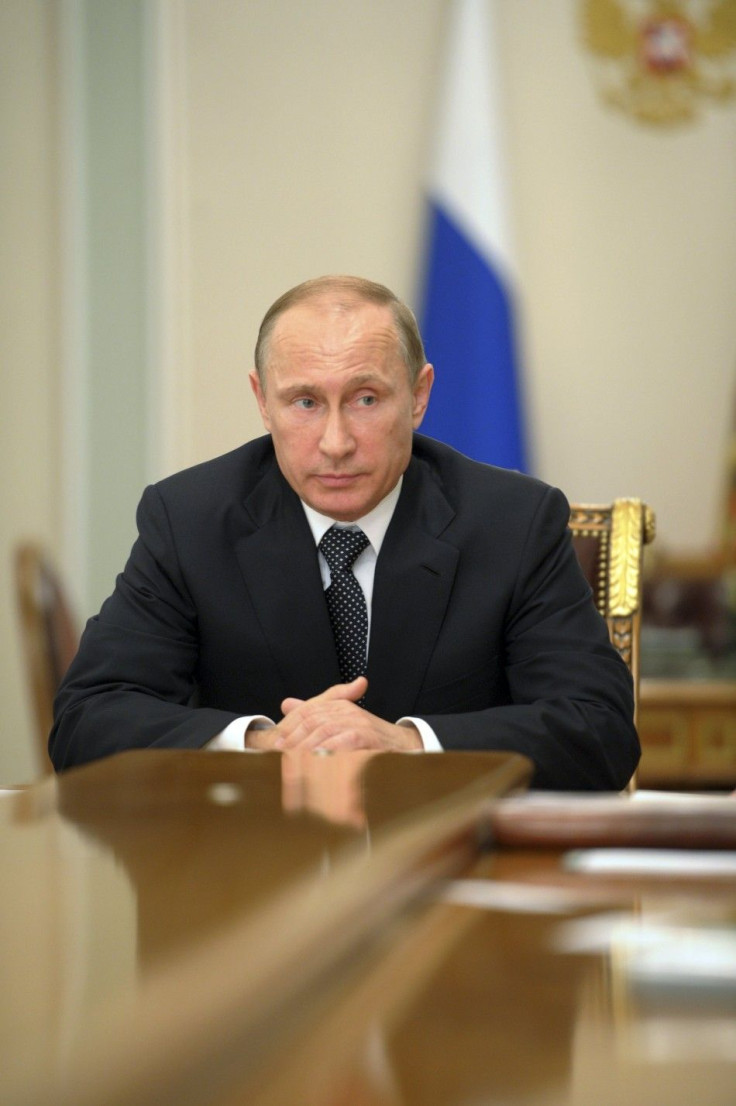War Tactics: Russia Dispatches Aid Convoy into Ukraine

Russia has dispatched an aid convoy to eastern Ukraine, fuelling earlier suspicions by the NATO (North Atlantic Treaty Organization) of an invasion. The humanitarian aid was said to be in coordination with the International Committee of the Red Cross.
The aid is believed to be being directed for the rebel-held city of Luhansk, with a population of 425,000. The Russian convoy is composed of 280 trucks carrying food and medicine.
Russian President Vladimir Putin reportedly informed European Commission President Jose Manuel Barroso of the mission.
"President Barroso warned against any unilateral military actions in Ukraine, under any pretext, including humanitarian,'' the commission said in a statement.
Ukraine, on the other hand, allowed the convoy aid mission on the condition that it should pass through a government-controlled border post, as well as that it must be accompanied by Red Cross officials.
Ukrainian President Petro Poroshenko apparently had been advised by U.S. President Barack Obama in a phone call on Monday. Mr Obama told Mr Poroshenko that any Russian intervention in Ukraine "without the formal, express consent and authorization of the Ukraine government would be unacceptable and a violation of international law," the White House said in a read-out of the call.
But NATO belies the sincerity of such aid mission, especially since Russia's 45,000 forces have yet to pull back from the border with Ukraine.
Read: World War III Triggers: Russia Invasion of Ukraine Looms, 20,000 Troops on Border - NATO
"We see the Russians developing the narrative and the pretext for such an operation under the guise of a humanitarian operation and we see a military buildup that could be used to conduct such illegal military operations in Ukraine," Anders Fogh Rasmussen, NATO Secretary General, told Reuters.
"Any Russian intervention under the guise of a humanitarian mission would be unjustified and illegal," Rasmussen said.
The ICRC confirmed it had sent a document advising Russian and Ukrainian officials on the aid mission. However, it stressed it can only carry out the task for as long as both parties agreed to it since it does not use armed escorts during its operations. "The practical details of this operation need to be clarified before this initiative can move forward," Laurent Corbaz, head of ICRC operations for Europe and Central Asia, said.
The invasion into Ukraine comes with a "high probability," Rasmussen said. It may just be a matter of time.
However, if and when that happens, he said NATO won't be seeking to play a military counter-intervention.
"We are not considering military operations. If the Russians were to intervene further in Ukraine, I have no doubt that the international community would respond determinedly, notably through broader, deeper, tougher economic sanctions that would isolate Russia further," he said.





















